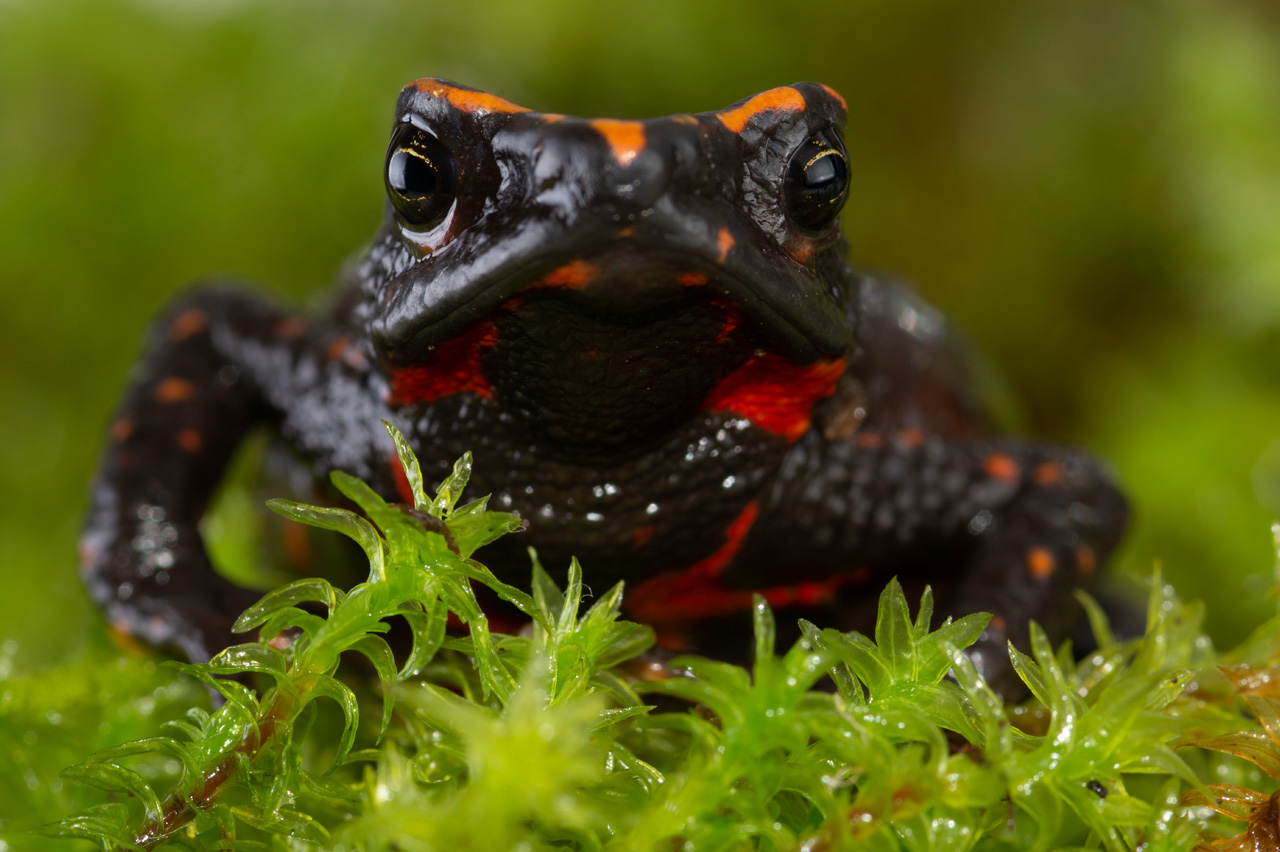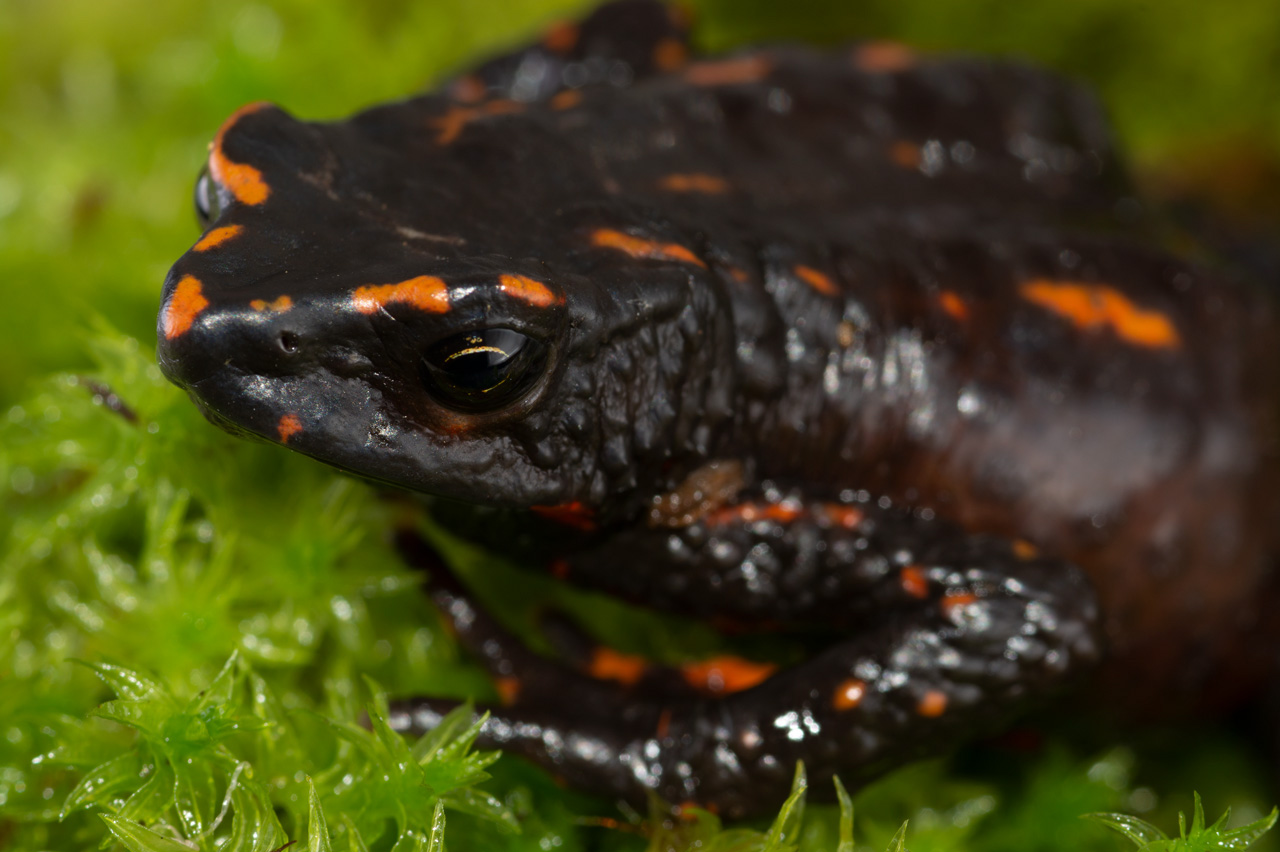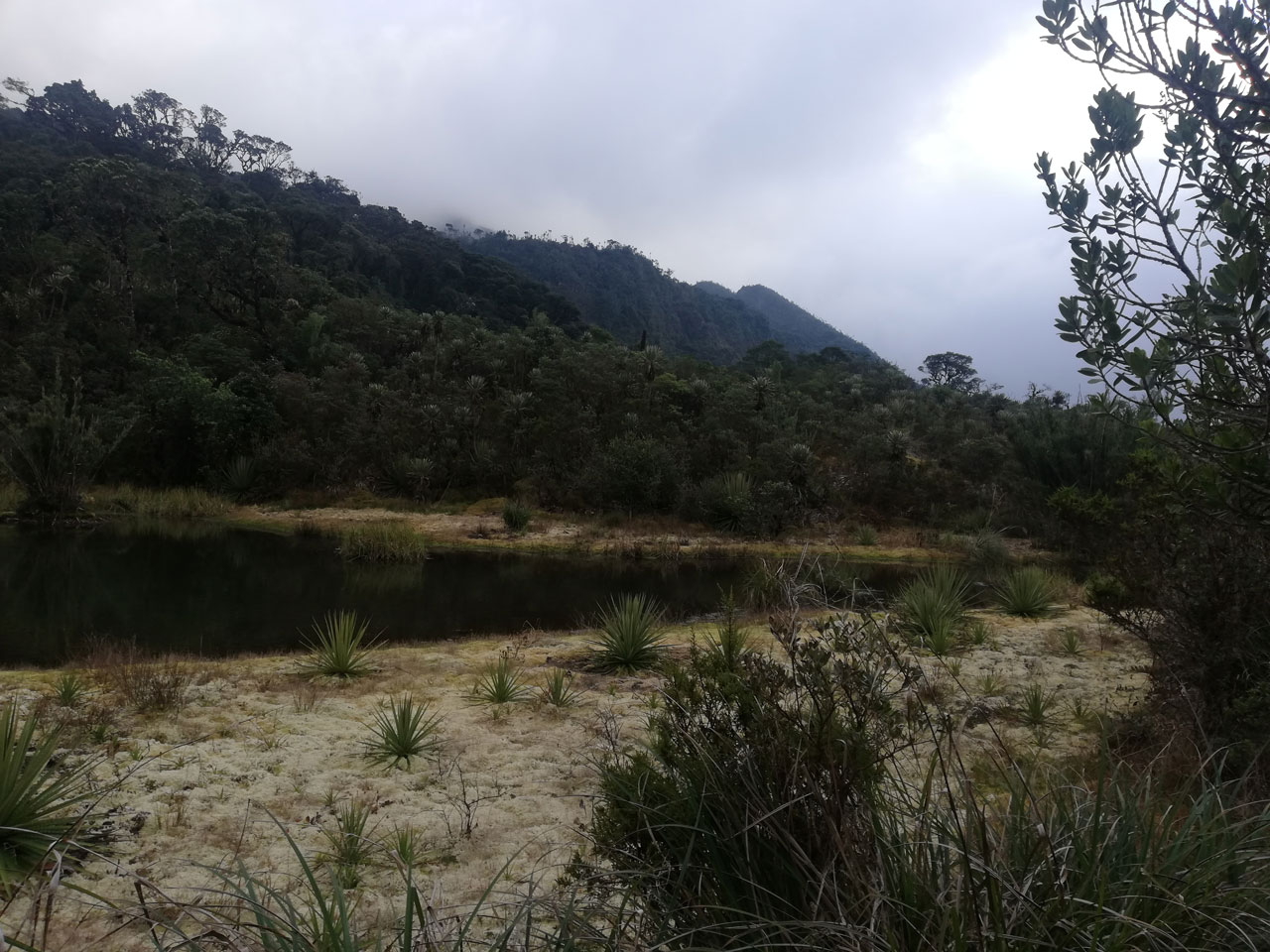This species of harlequin toad is critically endangered and endemic to Colombia. It is one of the most threatened amphibians in the world, as its populations have drastically declined due to various threats such as habitat destruction, the presence of invasive species like the rainbow trout, and diseases such as the chytrid fungus (Batrachochytrium dendrobatidis).
Rediscovery
At the end of the 20th century, Atelopus lozanoi populations vanished without a trace in the 1990s. However, on September 4, 2016, after nearly two decades of absence, the species was rediscovered in the village of Maza, within the buffer zone of Chingaza National Natural Park, on land owned by Carlos Ríos.
Carlos, a resident of the area and now a passionate protector of the species, has dedicated his farm, El Paramillo, to the conservation of this toad and has worked alongside his family to protect its habitat.
Conservation Efforts and Community Monitoring
In 2022, we completed the implementation of conservation actions in the properties of Mortiño, Alto Gaque, and El Paramillo, within Chingaza National Natural Park and its surroundings. We signed a conservation agreement with the property owner and Chingaza Park, covering 53.6 hectares in the Paramillo-Alto Gaque property, which has become a crucial refuge for Atelopus lozanoi.
 Photo: Gustavo González / WCS Colombia
Photo: Gustavo González / WCS Colombia
This agreement includes activities such as isolating forests and rivers, forest restoration, establishing tree nurseries, trout control, and improving infrastructure for sustainable tourism. About 90% of the property is designated for conservation. Efforts have also been made to create trails and build three elevated bridges for tourists.
Threat Control and Habitat Restoration
We carried out 12 trout control sessions during 2022 to address this invasive species that preys on the tadpoles of Atelopus lozanoi.
These sessions took place in September and October, coinciding with the species' breeding season. We also supported habitat restoration by planting 500 seedlings provided by the authorities of Chingaza National Natural Park. Additionally, we have fenced off about 500 meters of forests and streams to prevent cattle from entering and damaging the amphibian's habitat, facilitating the growth of seedlings and the restoration of these areas.
 Photo: Gustavo González / WCS Colombia
Photo: Gustavo González / WCS Colombia
Promotion of Sustainable Tourism
The owning family has been working on a sustainable environmental tourism project as an economic alternative. With our support, they have adapted trails and built three elevated bridges for tourist routes. This approach has promoted tourism that benefits both biodiversity and the local economy. It not only protects Atelopus lozanoi but also fosters the conservation of other threatened species in the region.
Environmental Education and Community Engagement
We conducted environmental education sessions in the municipality of Choachí (Cundinamarca), raising awareness in local schools about the importance of conserving the species.
We used educational tools such as stickers, infographics, t-shirts, folders, and puppets to promote knowledge and awareness of the threats amphibians face.
A campaign called "Save Chiguanito" was a local initiative aimed at fostering a sense of belonging among residents and promoting the conservation of Atelopus lozanoi. Additionally, we organized a drawing contest and puppet workshops to engage the community in conservation efforts.
The Significance of These Actions
The rediscovery of Atelopus lozanoi and the community-led conservation efforts have brought new hope for the species' recovery. Similar actions have also benefited Oophaga lehmanni.
El Paramillo farm, along with other areas in the region, has become a vital refuge for the frog, enabling the natural regeneration of its habitat and the conservation of other threatened species. Through community monitoring, continuous tracking of their populations has been achieved, with observations and records informing about their status and behavior.
 Foto: Gustavo González / WCS Colombia
Foto: Gustavo González / WCS Colombia
In conclusion, the collaboration between WCS, Cali Zoo, Zoo Zürich AG, National Natural Parks, and the property owner has been crucial to the project's success, aimed at conserving this harlequin toad, which still holds the hope of a future far from possible extinction.
Translated with AI support